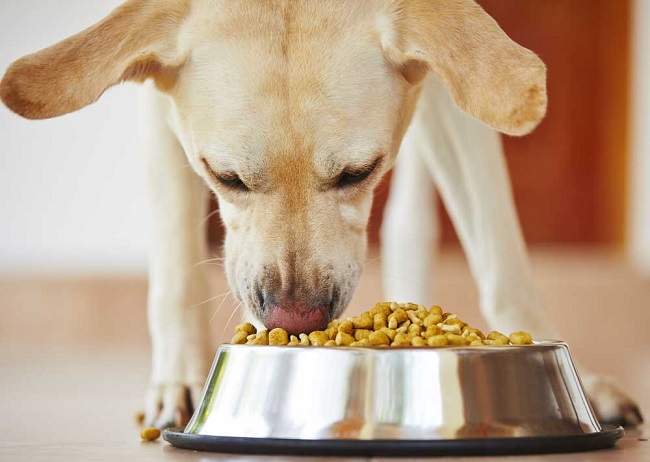Choosing the best dog food is a crucial part of pet ownership. When it comes to retriever breeds, such as Labrador Retrievers and Golden Retrievers, specific dietary considerations are paramount.
With their robust energy levels and unique health risks, a high-quality diet plays a critical role in their overall well-being.
Our comprehensive guide to Retriever Dog Food aims to provide detailed insights to help you make an informed decision for your furry friend’s nutrition.

Understanding the Nutritional Needs of Retrievers
Retrievers are a vivacious breed, known for their energy and active lifestyle. A balanced diet, rich in proteins, fats, carbohydrates, vitamins, and minerals, is crucial for sustaining their energy, supporting growth, and maintaining overall health.
Read Also:
Protein is a key ingredient in Retriever Dog Food, providing essential amino acids that support muscle development and repair. Healthy fats are critical for skin and coat health, brain development, and also provide a concentrated energy source.
Complex carbohydrates deliver steady energy, while a range of essential vitamins and minerals ensures optimal immune function and metabolic efficiency.
How to Choose the Right Retriever Dog Food
When selecting the right Retriever Dog Food, it’s important to consider your dog’s age, weight, activity level, and health status.
Puppies require diets higher in protein and calories for their growing bodies. Foods specially formulated for large breed puppies can aid in healthy growth and development.
Adult retrievers require balanced nutrition to maintain their weight and energy levels. Portion control is critical to prevent obesity, a common issue among this breed.
Senior dogs may need fewer calories but higher levels of specific nutrients like joint-supporting compounds (glucosamine and chondroitin).
Always look for dog food that lists a high-quality source of animal protein as the first ingredient. Avoid foods with unnamed meat meals or by-products and those containing artificial colors, flavors, or preservatives.
Special Dietary Considerations for Retrievers
Certain health conditions are more prevalent in retriever breeds, such as hip dysplasia, obesity, and certain types of cancer. Dietary adjustments can help manage these conditions:
- Weight management formulas can help prevent or manage obesity, a common issue with retrievers.
- Joint health formulas may benefit dogs prone to hip dysplasia and other joint problems.
- Antioxidant-rich foods can support immune health, potentially reducing cancer risks.
Understanding Allergies in Retrievers
Just like humans, retrievers can suffer from food allergies. These reactions can cause a range of symptoms, from skin issues like itchiness and redness to gastrointestinal problems like vomiting or diarrhea.
Common allergens for retrievers include beef, dairy, wheat, corn, and soy. Hypoallergenic dog foods or limited ingredient diets can be an excellent solution for retrievers with food allergies. Always consult with your vet if you suspect your retriever has a food allergy.
Best Retriever Dog Food Brands
There are numerous high-quality dog food brands that offer nutritionally balanced food specifically tailored to retrievers. Some of these include:
Blue Buffalo Life Protection Formula: This diet focuses on real meat as the first ingredient and contains Lifesource Bits, a blend of antioxidants, vitamins, and minerals.
Royal Canin Breed Health Nutrition Labrador Retriever: Formulated specifically for Labrador Retrievers, this food is designed to support skin health, bone & joint health, and ideal weight.
Wellness CORE Grain-Free Large Breed Dog Food: A protein-rich, grain-free option packed with premium ingredients for optimal energy and lean body mass.
Read Also:
Conclusion
Choosing the right Retriever Dog Food is an essential step towards ensuring a long, healthy, and happy life for your furry friend. Considering their unique nutritional needs and potential health issues can guide your decision-making process.
By providing your retriever with a balanced diet, you are contributing to their overall well-being, keeping them active, and enhancing their quality of life.
Remember, every dog is unique, so it’s always best to consult with your vet before making any significant changes to your retriever’s diet. Armed with this comprehensive guide and professional advice, you’re well on your way to choosing the best food for your retriever.
























